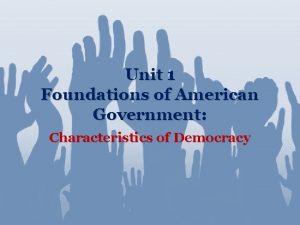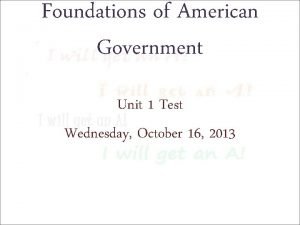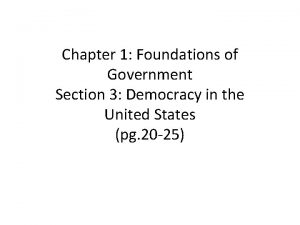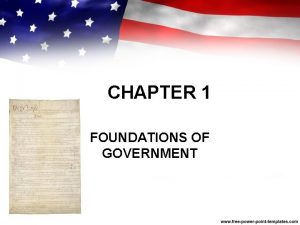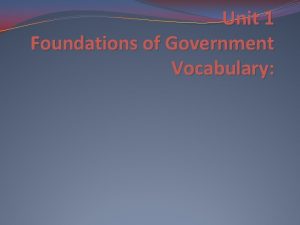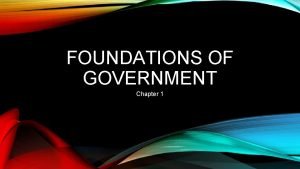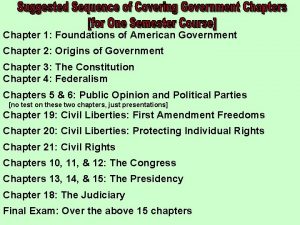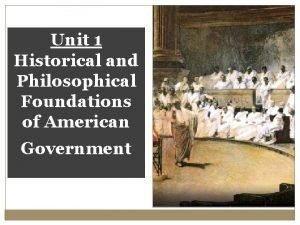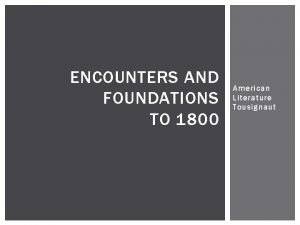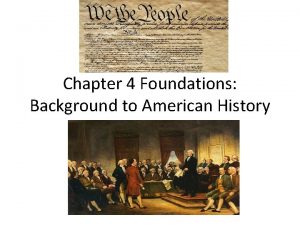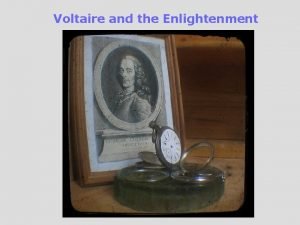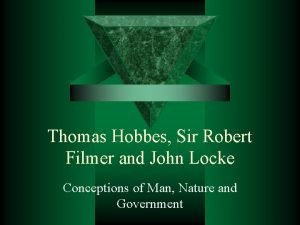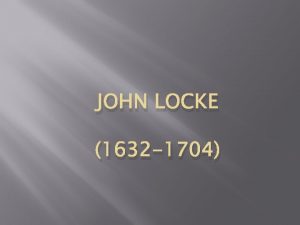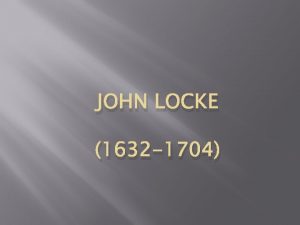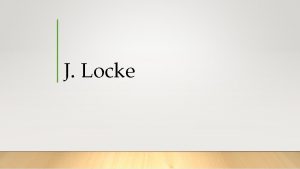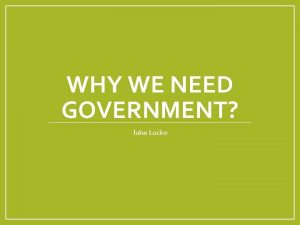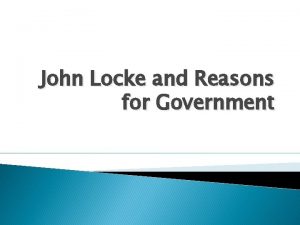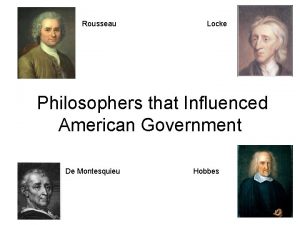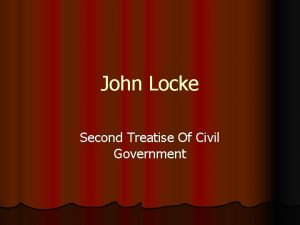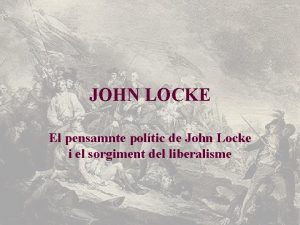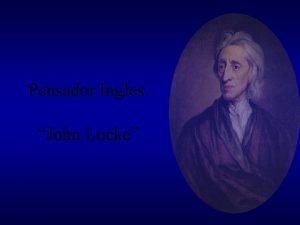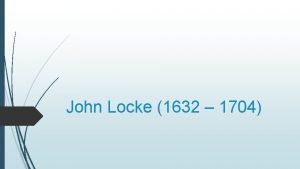Foundations of American Government PHILOSOPHERS DOCUMENTS JOHN LOCKE












- Slides: 12

Foundations of American Government PHILOSOPHERS & DOCUMENTS

JOHN LOCKE � Second � Every Treatise on Government man is created GOOD � Entitled to “Natural Rights” (life, liberty, and property) � Government is necessary � Representative government � Separation Government= the best form of of Powers= Good Idea

THOMAS HOBBES � Leviathan � Every man is created EVIL � Need 1 single great POWER � Powerful � No � If people ABUSE power oligarchy or democracy leader is not doing what people want, get a new leader

CHARLES MONTESQUIEU � The Spirit Laws � 3 types of government= monarchy, democracy, dictatorship � Government RULED BY THE PEOPLE= Best form of government � Separation of power- 3 branches. Legislative, Executive, Judicial � Checks and Balances

COMMON THEME � All 3 believed government and the state exists to serve the will of the people

MAGNA CARTA 1215 - nobles in England had enough of paying extra taxes Barons rebelled and captured London Met with the King to reach a peace agreement King agreed to their demands by signing a document known as the Magna Carta- the “Great Charter”

MAGNA CARTA Rights of people are protected against the power of the king or queen Important Points: 1. The church had the final say in who was appointed to Church positions of power 2. The King was not allowed to demand more money from his nobility 3. Everyone has a right to a fair trial.

PETITION OF RIGHT- 1628 King Charles I of England was unpopular with the people and parliament because he abused his power He quartered troops in people's houses He arrested people that went against him He asked parliament for more money in taxes.

PETITION OF RIGHT Parliament made him agree to the following: 1. No troops could be quartered in people's houses 2. No taxes without Parliament's approval 3. No person can be jailed without reason

ENGLISH BILL OF RIGHTS- 1688 Parliament gave control of England to William and Mary of Orange during the Glorious Revolution Parliament worried the new monarchs would abuse their power like previous kings and queens Made them sign a Bill of Rights

ENGLISH BILL OF RIGHTS- 1688 The rules included: Trial by jury Due Process No cruel punishment No excessive fines or bails Right to bear arms Right to petition the government

COMMON THEME All 3 documents limited the power of the government (aka “the kings and queens”)
 Unit 1 foundations of american government
Unit 1 foundations of american government Foundations of american government unit test
Foundations of american government unit test Foundations of government section 3
Foundations of government section 3 Chapter 1 foundations of government
Chapter 1 foundations of government Chapter 1 foundations of government vocabulary
Chapter 1 foundations of government vocabulary Chapter 1: foundations of government pdf
Chapter 1: foundations of government pdf Foundations of government (chapter 1 test form a)
Foundations of government (chapter 1 test form a) Philosophical foundations of the american revolution
Philosophical foundations of the american revolution Foundations and encounters early american literature
Foundations and encounters early american literature Chapter 4 foundations background to american history
Chapter 4 foundations background to american history Voltaire and locke
Voltaire and locke Patiarcha
Patiarcha John locke vs thomas hobbes
John locke vs thomas hobbes
